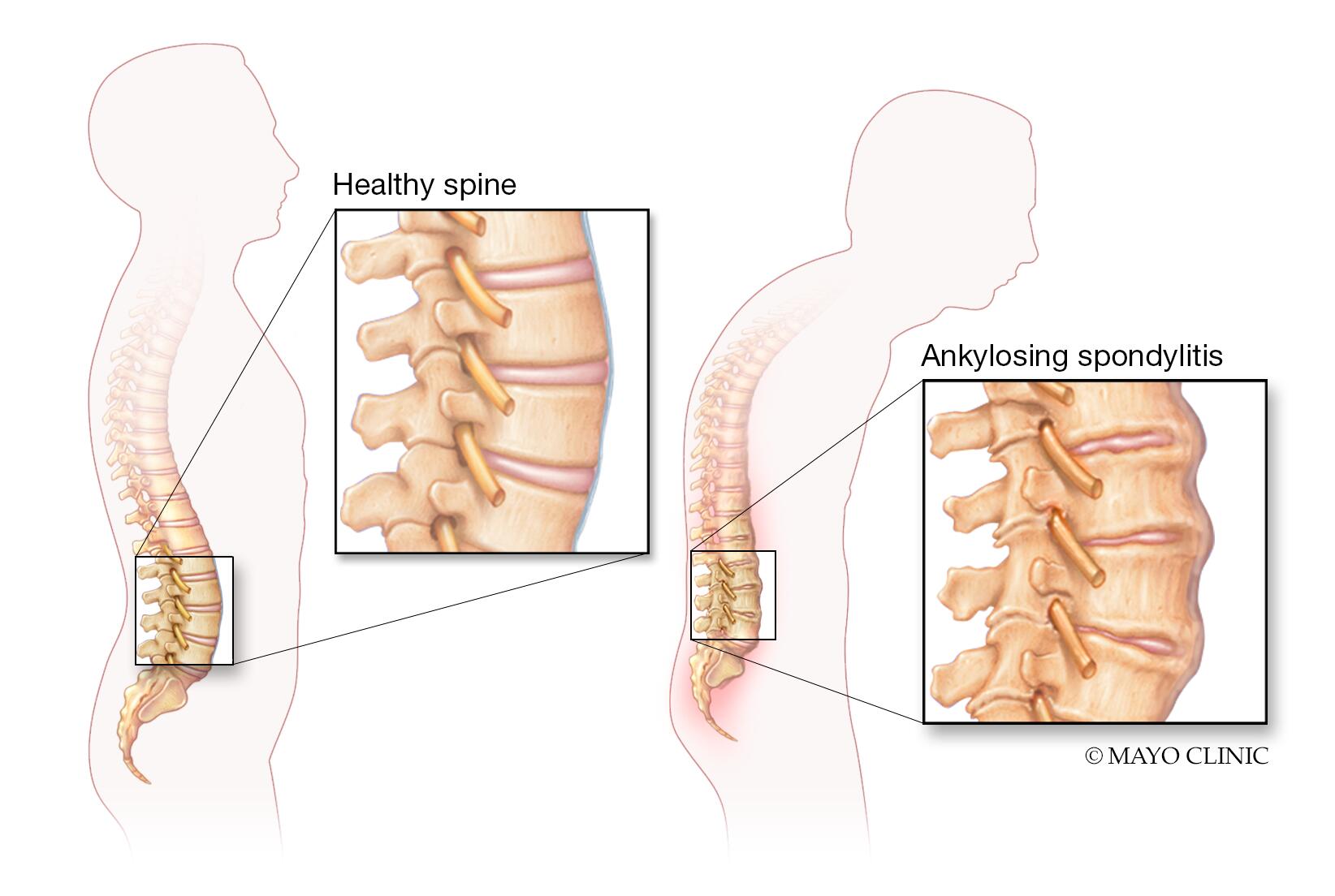
Lumbar Spondylosis
Spondylosis is a broad term that refers to any type of spine degeneration. Spondylosis is most commonly used to describe osteoarthritis of the spine, but it is also used to describe any type of spinal degeneration.
Spondylosis, like many other terms for spinal problems, is more of a descriptive term than a clinical diagnosis. It translates to "I have both pain and spine degeneration," regardless of what causes the pain or where the degeneration is occurring.
Overview
Ankylosing spondylitis is an arthritis that can cause chronic back pain. The lower spine is the most commonly affected. When it affects your lower back, it's known as lumbar spondylitis / Lumbar spondylosis. A term that describes the degeneration of the cartilage and bones in the lower back (lumbar vertebrae), which is most commonly associated with osteoarthritis, spinal stenosis or spondylolisthesis
Spondylosis is a broad term that refers to any type of spine degeneration that occurs naturally as people age. Lumbar spondylitis can cause a restriction in your back's range of motion. Other joints, such as your ribs, shoulders or hips, may also be affected. Symptoms usually appear in early adulthood, but they can appear in teens or children as well. Adults aged 60 and up are more likely to develop lumbar spondylosis due to abnormal wear and tear on the spine that hastens the degenerative process.
Causes
The discs in the spine begin to degrade, lose fluid, and stiffen over time. Again, this is a normal part of the ageing process. Unfortunately, some of these changes can result in back pain and stiffness. These include,
Bone spurs, which exert force on the lower back and cause back pain
Ligament stiffening, which impairs mobility and causes back pain
Herniated or bulging discs put pressure on nerves and the spinal cord
Dehydrated discs cause bone-on-bone contact and contribute to back pain.
Other lumbar spondylitis risk factors include,
Family history
Age, with the majority of people developing symptoms before the age of 45
People suffering from Crohn's disease
when
Symptoms
Lumbar spondylosis, like most spinal problems, causes back pain and stiffness. It may also result in,
Spasms in your lower back muscles when you sit or stand up
You may experience grinding or popping sensations.
Numbness in the lower back, legs, and toes
Backache in the buttocks. Sciatica is a type of leg pain.
In rare cases, lumbar spondylosis causes bladder or bowel control problems.
If you experience any of these symptoms, seek immediate medical attention.
Ayurvedic View
Kati shoola - The condition in which kati means the spine of the lumbo-sacral region, and shoola means pain present, is lumbar spondylosis. Aggravated vata dosha takes sthana (settles) in kati pradesha (lumbar spine), does dushti (vitiation) of asthi vaha srotas (bone and nearby bone supporting structures), which results in pain, restricted movement and difficulty with the function of lumbar spine movements. The Ayurveda way of approach is to bring dosha back to prakruta awastha (balance state, reduce the symptoms, nourish the dhatus (affected bones and supporting structures of the lumbar), and rehabilitate the affected part by Ayurvedic panchakarma treatment.
Lumbar Spondylosis
Treatment for
DISCLAIMER: Listed treatment details are only for information purposes. Treatments and duration may vary depending on numerous factors. Treatments for your condition may not be limited to this list.






















